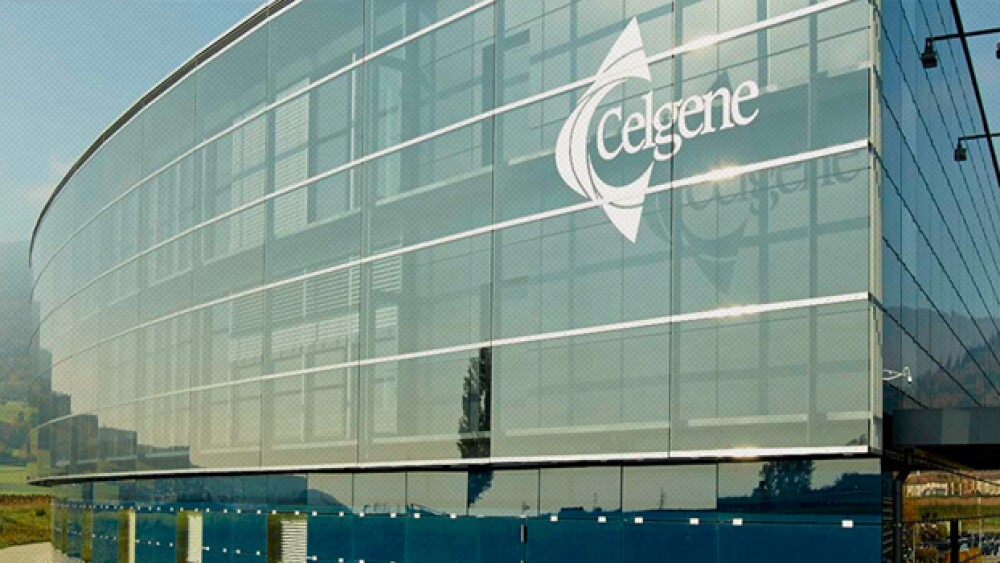Celgene announced data from its Phase III AUGMENT clinical trial that compared Revlimid (lenalidomide) and rituximab to placebo in relapsed/refractory follicular and marginal zone lymphoma.
Celgene announced data from its Phase III AUGMENT clinical trial that compared Revlimid (lenalidomide) and rituximab to placebo in relapsed/refractory follicular and marginal zone lymphoma. There was a highly statistically significant improvement in the primary endpoint of progression-free survival (PFS).
The clinical trial evaluated the efficacy and safety of Revlimid plus rituximab compared to rituximab plus placebo. In addition to the primary endpoint, a “favorable trend” was seen for overall survival (OS). The company expects to continue tracking it for mature OS results.
The safety profile of the combination was consistent with that seen in the individual drugs. No new safety issues were observed.
“Indolent non-Hodgkin lymphomas, such as follicular lymphoma and marginal zone lymphoma, are diseases of underlying immune dysfunction with a need for new options beyond currently available therapies,” said Jay Backstrom, Celgene’s chief medical officer, in a statement. “We are encouraged by the highly significant improvement in progression-free survival observed in this study and look forward to engaging with regulatory authorities as soon as possible. The R2 (Revlimid plus rituximab) regimen represents a potentially new chemotherapy-free option for these patients.”
Full data will be presented at a future medical conference. Meanwhile, Celgene plans to submit the combination to global regulatory authorities in the first quarter of 2019.
This is more good news after a string of missteps. Earlier this month, the company announced that its Phase III IMpassion130 trial, sponsored by Roche, met its co-primary endpoint of progression-free survival (PFS).
The trial evaluated the combination of Tecentriq (atezolizumab) and Abraxane (paclitaxel protein-bound particles for injectable suspension) compared to Abraxane alone as a first-line treatment in first-line metastatic or unresectable locally advanced triple negative breast cancer (TNBC). The combination significantly cut the risk of the disease getting worse or death. Overall survival was also encouraging in the interim analysis in the PD-L1 positive population. Safety profiles for the combination were consistent with the individual therapies.
Also, only a day earlier, Celgene Corporation and Acceleron Pharma indicated their Phase III clinical trial of luspatercept in beta-thalassemia hit its primary endpoint of erythroid response.
Luspatercept is a first-in-class erythroid maturation agent (EMA). The companies believe it regulates late-stage red blood cell maturation. The two companies have developed the drug jointly. Their collaboration began seven years ago when the drug was called ACE-536. At that time, Celgene paid Acceleron $25 million to work together, and milestone payments totaled about $217 million.
Celgene and Acceleron also announced that luspatercept met the primary and key secondary endpoints in the MEDALIST clinical trial. MEDALIST looked at the efficacy and safety of the drug compared to placebo in patients with IPSS-R very low, low or intermediate risk myelodysplastic syndromes (MDS) with chronic anemia and refractory to, intolerant of, or ineligible for treatment with an erythropoietin-stimulating agent (ESA), ring sideroblast-positive and require frequent RBC transfusions.
The companies plan to present data at a future medical meeting his year as well as regulatory applications in the U.S. and Europe in the first half of 2019.
But these positive reports are in contrast to much of the news coming out of the company over the last year. In late 2017, it dropped a late-stage Crohn’s disease drug and two clinical trials associated with it. Much more troublesome in many ways, was when the U.S. Food and Drug Administration (FDA) issued a Refusal to File letter regarding its New Drug Application (NDA) for its multiple sclerosis drug ozanimod. For a company of Celgene’s size and experience, that was unexpected.
Celgene simultaneously took responsibility for the screw-up while pointing the finger at its California subsidiary, Receptos, saying that executives should have done a better job of integrating its operations after it bought it in 2015 for $7.2 billion.





